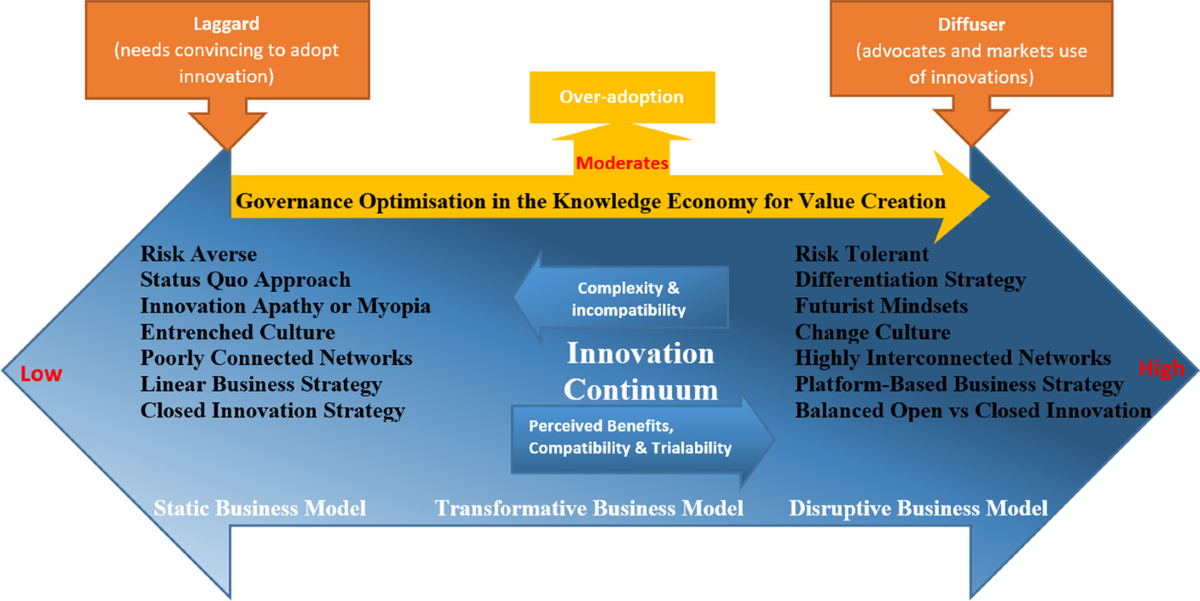Introduction
Disruptive business models are now the main driving force behind innovation and change in today’s economy, which changes quickly. Not only are they fresh methods, but they are also innovative ways of doing things that change whole industries from the ground up. Disruptive business models do well when they make things better for customers by being cheaper, easier to get to, and more efficient than traditional means. Disruptive business models are causing a surge of change that can’t be ignored in technology, retail, transportation, and healthcare.
The Main Idea Behind Disruptive Business Models
Disruptive business models function by either going after market segments that have been ignored or changing how value is given. Instead of going head-to-head with existing companies, they come in from the bottom or side of the market and provide solutions that are easier, cheaper, or more convenient. These disruptive business models change and get better over time, and they finally beat the big companies that have been there for a long time. When companies use these kinds of models, they typically change the rules of their industries, which makes their competitors reassess everything they do. Disruptive company models work because they link new ideas with giving customers more power.
How Technology Helps Business Models That Change the Game
Technology is the most important part of company models that shake things up. New technologies like digital platforms, AI, and data analytics have made it simpler for new companies to shake up existing sectors. Startups use these tools to give customers personalized experiences, cut expenses, and grow their businesses around the world at an unparalleled speed. Disruptive business models that change how people use things have led to every major breakthrough in the last ten years, from streaming services to ride-hailing apps. In a world where everything is connected and digital-first, these models may prosper because technology and vision work together.
The Effects of Disruptive Business Models on the Economy
It’s hard to overestimate how much disruptive business concepts affect the world economy. They create new jobs, encourage others to start their own businesses, and encourage healthy competition. But they also force current players to change or risk becoming out of date. The entry of companies with disruptive business models has changed traditional businesses including banking, education, and transportation. These changes aren’t just about money; they also impact how people act and what society expects of them. Disruptive business models change what it means to make progress in the business world by always pushing the limits.
How Disruptive Business Models Work
Disruptive business models have shown that they can change the way people live and work in many different fields. Home-sharing websites took the role of traditional hotels in the hospitality industry by offering cheap, local stays. App-based ride services took over the taxi monopoly in the transportation industry. Streaming services revolutionized the way we watch movies and TV shows. Each of these shows how disruptive business concepts change from being a new idea to a popular movement. These success tales are strong reminders that new ideas often come from breaking the rules and daring to think outside the box.
Problems with Disruptive Business Models
Disruptive business concepts offer opportunities, but they also encounter considerable hurdles. There are typically problems with regulations, the market, and scaling that get in their way. Lobbying or copying the disruptor’s practices are two ways that traditional players fight back. But the strength of disruptive business models comes from how flexible they are. They can change, use data, and focus on the customer, which helps them get past problems that earlier seemed impossible. Disruptive business models will keep doing well as long as they stay focused on solving real-world problems, even when people don’t like them.
The Future of Business Models That Change Things
Business models that are disruptive and welcome new ideas while still being ethical and environmentally friendly are the way of the future. Green technology, artificial intelligence, and decentralized economies are expected to be the next big things that cause problems. Disruptive business models will help sectors move toward sustainability and digital empowerment. Their impact will go beyond making money; they will also help society and the environment. The border between disruption and progress will become less clear, and companies that use these approaches will influence the future of the world’s economy.
Conclusion
In conclusion, disruptive business models are more than just a trend in the economy; they show a way of thinking that is open to change and strong. They go against the rules, change whole industries, and keep pushing for new ideas. The business world will keep changing quickly as organizations keep looking into the endless possibilities of disruptive company models. In this time of change, businesses that adapt, come up with new ideas, and put customers first will do well. In the end, disruptive business models aren’t only about tearing down the old; they’re also about establishing the new.

